

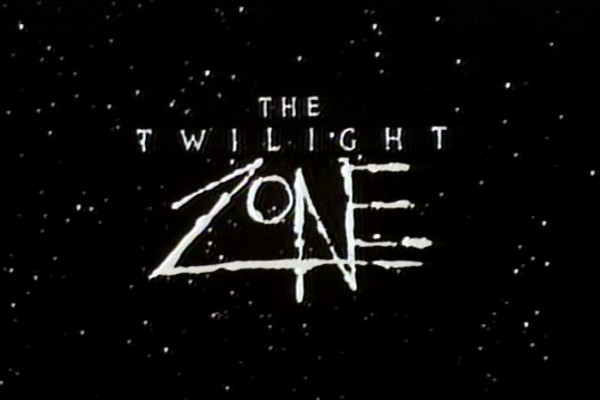
Airing from September 1988 - April 1989, the series is available on DVD from Amazon. In the meantime, please join me in ranking the thirty episodes of the season from worst to best. Please note that, while spoilers are avoided if possible, some of the summaries and images may give away plot points.
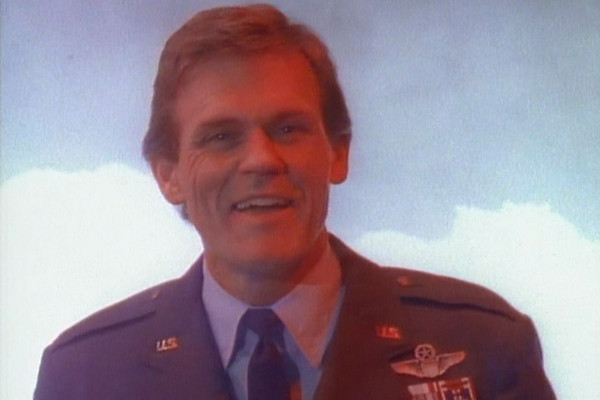
With a current rating of 4.8/10 on the Internet Movie Database, The Wall has the unenviable position of being the lowest-rated episode of any Twilight Zone series. It's a harsh judgement as there are worse episodes of the series... well, maybe. Writer J. Michael Straczynski would go on to make his name in the mid-90s with Babylon 5 (a series with which the Anorak Zone is not well acquainted) and wrote ten scripts for this third Twilight Zone season, four of which are in the top ten ranked entries. This, sadly, is not one of them, featuring awful lines like "Perfection is a fragile thing, Major... it doesn't survive the microscope" and a depiction of military life that is strictly one-dimensional.
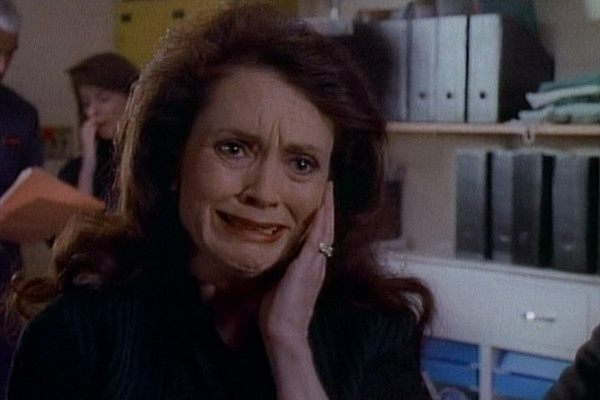
Written by Jeremy Bertrand Finch and Paul Chitlik, a writing partnership who had given the series five variable quality episodes, ranging from season two's Aqua Vita and this season's The Hunters, The Trunk, Stranger In Possum Meadows and Room 2426. This tale about a man using cybernetics to prolong his life is by far their worst, with some shockingly awful dialogue. Although the discussions about what constitutes life are worthwhile, they're overlaboured and don't constitute a dramatic narrative.
What makes matters worse is that the arch, "daytime soap" performances drag down the OTT script even more. It's incredibly odd, because director Randy Bradshaw was behind three other episodes, two of which were far superior in quality - The Trance, A Game Of Pool and Special Service. Not only that, but the actors involved are all experienced, with lead Ed Marinaro having appeared in over 100 episodes of Hill Street Blues, as well as numerous other TV series. He does his best, but it all looks incredibly stagy, and the supporting cast are all even worse, not even being able to walk convincingly, despite the fact that, again, all are very experienced in television. It suggests that the episode was shot at a very fast rate to a strict deadline, which makes it difficult to fathom why it went out last. The DVD release has nine episodes that come after this, indicating that it was produced far earlier in the run. All nine episodes rank higher in this list, with five of them even in the top ten.
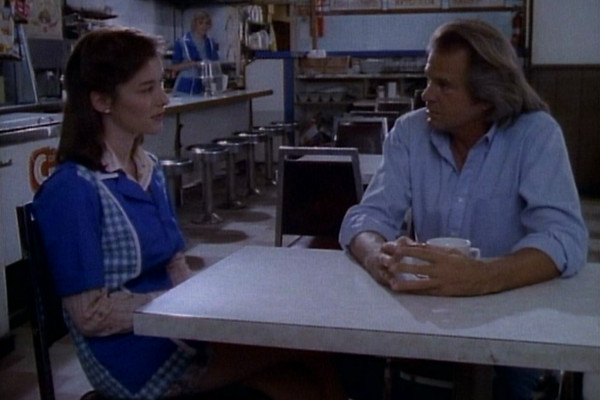
One of the more 80s episodes, as Paul Le Mat stars as a businessman with long, coiffured hair and shoulder pads, like some kind of grey lion. The recipient of a heart transplant, he finds that said heart leads him to the donator's old love.
The script by Haskell Barkin contains such terrible lines as "The kind of love that you feel right down into your toes" and "follow your heart"; it's an appalling mess. Barkin wrote four episodes for the revival series, including season one entries Tooth and Consequences and Act Break, both of which were ranked in the bottom five. The Curious Case of Edgar Witherspoon from this season fares better, but generally his work was too frivolous to really connect.
In the final analysis, it's harder to know which is the biggest surprise: that Le Mat's businessman doesn't tell a waitress that he's in possession of her dead boyfriend's heart, or that anyone involved in this episode genuinely thought viewers wouldn't see the "revelation" coming several minutes beforehand.
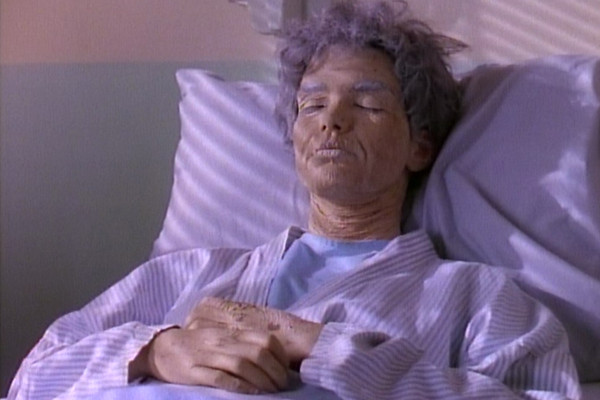
The story for Our Selena is Dying was found in Rod Serling's papers by his wife Carol, and was the middle section of a three-story screenplay idea. Written in the early 1970s before his death, the storyline bears uncanny similiarities to events in the fifth season original series episode Queen Of The Nile by Jerry Sohl. Had it been produced at the time, it would have doubtless led to allegations of unconscious plagiarism from Serling... however, made 24 years later in a faithful script by J. Michael Straczynski, the similarities are not as apparent. What is apparent is, sadly, how much Rod had begun to slip in his later years: the finished product here is messy, over-elaborate and – not something that can be blamed on Serling – shakily acted.
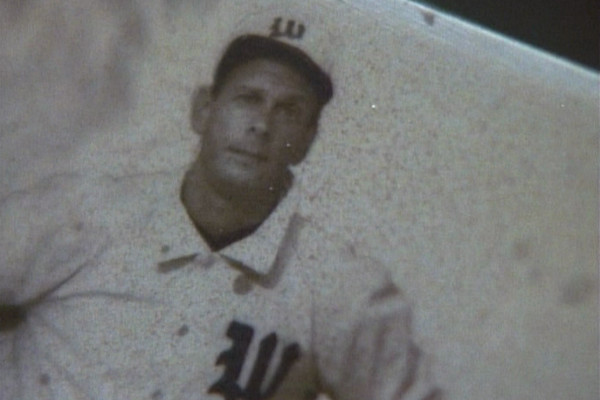
A somewhat mawkish tale about an injured ex-baseball player who is able to reclaim his career thanks to a time-travelling baseball card. Marc Singer is fine as the lead, but the rest of the cast given uncertain performances in an aimless story. Rather surprisingly, director Doug Jackson's only other Twilight Zone credit was the far superior The Mind Of Simon Foster.
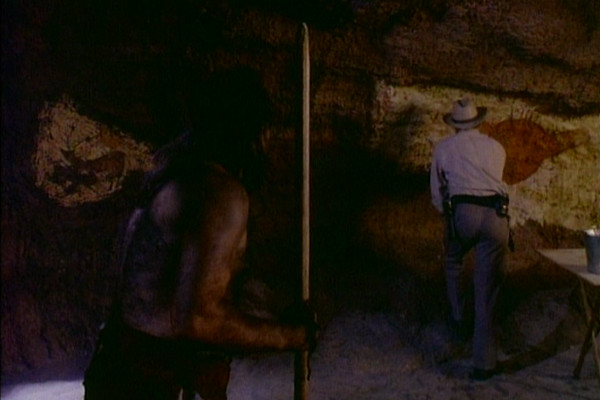
A 12,000 year old cave is accidentally uncovered, which leads to a race of prehistoric man, still alive thanks to some Twilight Zone enchantment. On the face of it, it's actually not a bad story, but even at just over 20 minutes of material it's laboriously slow and lacking in incident. Louise Fletcher does her best, but she isn't given adequate back up by her co-stars, and there's very little intent on telling a gripping narrative.
As an example of how unfocussed the storyline is, the opening narration tells us that "...today, this curious boy is about to discover a terrifying secret ..." despite the fact that said boy (Steven Candrade, incredibly wooden) exits the story after five minutes and has no real bearing on events. While such things might seem like nit-picks, it would be hard to imagine the original series giving us a Serling narration where he highlights a character who is then largely incidental to the plot and leaves before the end of the first act.